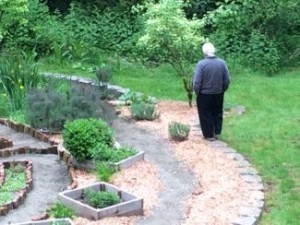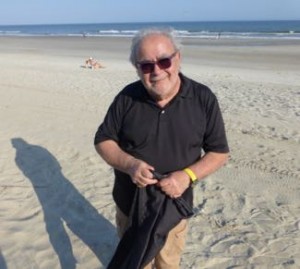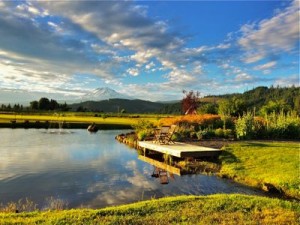Managing Your Energy Part 48: Energy Practice On the Spot

At my recent retreat I was doing a sound practice that generates a sense of spacious, eternal power. It was comprised of three different Divine Names, combining their energies. I chose to practice this one fairly loudly, while walking, to bring it into my body and integrate it.
Participants had been invited to use the main hall if it was free. I chose to practice there, to feel contained and focused, with plenty of space to move. Everyone else was practicing outside, or in their rooms.
So here I was, bringing in a quality of divine power, an intense flavor of longing for the Divine, and an attunement with Eternity, trying to ground all this in my body and taking up most of the hall. I heard the door click and feel someone enter. My eyes were open but my focus was  right in front of me to eliminate visual cues. I glanced up for a second, saw that it was my Teacher, went “ULK!” inside, skipped a few beats, and went right back into my practice. I had forgotten that my Teacher planned to meet with individuals who had questions in the hall. He had come early.
right in front of me to eliminate visual cues. I glanced up for a second, saw that it was my Teacher, went “ULK!” inside, skipped a few beats, and went right back into my practice. I had forgotten that my Teacher planned to meet with individuals who had questions in the hall. He had come early.
I am kind of a funny creature. I know that he REALLY SEES me, and accepts me, yet I get awkward or glitchy if he watches me directly during group walking or energy practices. He made himself almost invisible, harmonious with my energies, soft, spacious, and fluid, and crossed the room without a ripple, seating himself in his customary chair. It seemed dumb to run out of there, so I determined continue. I thought he would want me to.
My Teacher began to meditate. He was very much in his own space, but probably noticed that I was walling him off. I was afraid I would get glitchy—which was stupid. So I connected, and let his energy in. As we connected it felt like he was enhancing or amplifying the work I was doing.
Suddenly I got so high I began forgetting the words. At first I would get something similar to the word, or reverse and combine two of the words. I was able to stop, feel for the words, kind of reset, and start again. As we flowed together more I lost the words completely. This was odd because I had just repeated those three words at least 500 times! I looked askance at him and said, “Oh no! Now I’m going to have to go get the sheet and read them!” I began to cross the room. He said them quietly, giving them to me.
In retrospect, I should have sat down and meditated with him on the energy behind the words, which was the next step of the practice, but I didn’t think of it. Instead, I resumed practice. I was starting to change it out a little, lightening it up and getting it smooth by speeding up a bit when his assistant showed up. She stayed out of the way as far as the energetics went, but I realized they were about to do interviews and got out of there. Someone was waiting in a chair outside.
This experience felt almost like a mini-initiation because it took so much effort to keep my mind and ego from butting in on the practice while feeling on display. It was also rather humorous, and at the same time staggeringly intimate and precious.
What events have intensified your ability to sense and magnify your awareness and mastery of energy?
How did you feel about these experiences at the time?



















